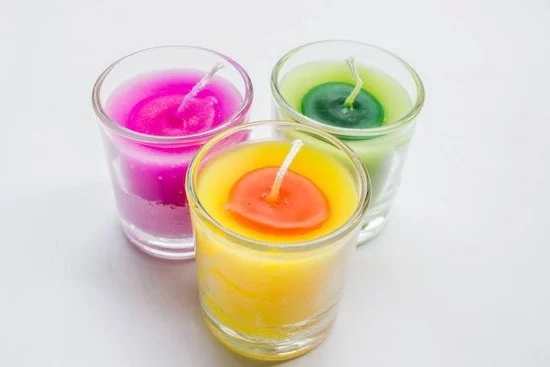Aromatherapy has been utilized for centuries as a natural way to enhance overall well-being and improve quality of life. This holistic approach to wellness involves the use of essential oils and their aromas to promote physical, mental, and emotional health. From stress reduction to better sleep, aromatherapy offers a multitude of benefits for individuals seeking natural remedies for their health concerns.
Aromatherapy dates back to ancient civilizations such as Egypt, Greece, and Rome, where essential oils were used for various medicinal and therapeutic purposes. Today, it is widely recognized as an effective complementary therapy in modern healthcare practices. By harnessing the power of plant-derived scents, aromatherapy can positively impact one’s quality of life through its calming, uplifting, and healing properties.
In this article, we will delve into the fundamentals of aromatherapy and its historical roots, as well as explore the many benefits it offers for improving physical, mental, and emotional well-being. Additionally, we will discuss popular essential oils and their specific uses for different health concerns while providing practical tips for incorporating aromatherapy into daily routines.
Understanding the Benefits of Aromatherapy
Aromatherapy is a holistic healing treatment that uses natural plant extracts to promote health and well-being. This ancient practice has been used for centuries in various cultures for its therapeutic benefits. The use of essential oils in aromatherapy can have a positive impact on physical, mental, and emotional health. Understanding the benefits of aromatherapy can shed light on how this practice can improve the overall quality of life.
Physical Health
Aromatherapy has been shown to have physical health benefits such as reducing inflammation, easing muscle tension, and improving circulation. Certain essential oils like lavender, peppermint, and eucalyptus have analgesic properties that can alleviate pain and discomfort. Research has also demonstrated the effectiveness of aromatherapy in supporting the immune system and promoting overall physical well-being.
Mental and Emotional Health
The use of aromatherapy has a significant impact on mental and emotional well-being. Essential oils like bergamot, chamomile, and rosemary are known to reduce stress, anxiety, and depression. The olfactory system directly connects to the limbic system in the brain, which is responsible for emotions and memories. This connection explains how certain scents can positively influence mood and emotional balance.
Research Evidence
Numerous studies have supported the claims of aromatherapy’s benefits. Research has shown that inhaling certain essential oils can lead to reduced blood pressure, heart rate, and cortisol levels – all indicators of stress reduction. Aromatherapy has also been found to improve sleep quality, cognitive function, and overall quality of life for individuals dealing with various health concerns.
Understanding these diverse benefits underscores how aromatherapy can greatly improve quality of life by addressing both physical ailments as well as mental and emotional challenges. Incorporating aromatherapy into one’s wellness routine may lead to an enhanced sense of overall well-being and happiness.
Popular Essential Oils and Their Uses
When it comes to aromatherapy, essential oils play a crucial role in promoting overall wellness and improving quality of life. These potent plant extracts have been used for centuries for their therapeutic properties, offering a natural and holistic approach to health. Here are some popular essential oils and their specific uses:
1. Lavender: Known for its calming and relaxing effects, lavender essential oil is often used to promote better sleep and reduce anxiety. It can also help alleviate headaches and migraines.
2. Peppermint: With its invigorating scent, peppermint essential oil is excellent for boosting energy levels and reducing mental fatigue. It can also aid in relieving digestive issues such as indigestion and nausea.
3. Eucalyptus: This essential oil is commonly used for respiratory support, helping to clear nasal congestion and ease symptoms of colds and sinusitis. Its refreshing aroma can also stimulate mental clarity.
4. Tea Tree: Renowned for its antimicrobial properties, tea tree essential oil is often used in skincare for treating acne, cuts, and insect bites. It can also help boost the immune system.
5. Lemon: With its bright and uplifting fragrance, lemon essential oil is a great mood enhancer that can improve focus and concentration. It also has purifying qualities when used in cleaning products.
By incorporating these essential oils into your daily routine through methods such as diffusing, topical application, or inhalation, you can experience the numerous benefits they offer in promoting physical, mental, and emotional well-being.
Aromatherapy and Stress Reduction
Aromatherapy has been used for centuries as a natural way to promote relaxation, reduce stress, and improve overall well-being. The use of essential oils and aromatic compounds derived from plants has been proven to have a positive impact on mental and emotional health.
Research has shown that certain scents can have a direct effect on the brain, influencing mood and emotions. By understanding how aromatherapy can reduce stress, individuals can incorporate it into their daily lives to experience the benefits firsthand.
One of the key ways aromatherapy helps reduce stress is through the inhalation of specific essential oils. When inhaled, these aromatic compounds can act on the olfactory system and trigger the release of neurotransmitters such as serotonin and dopamine, which are associated with feelings of happiness and relaxation.
For example, lavender oil has been found to have calming effects on the nervous system, making it an ideal choice for reducing stress and anxiety. Similarly, citrus scents like bergamot or lemon can uplift mood and alleviate tension.
In addition to inhalation, aromatherapy can also be used topically through massage or diluted in bath water. When essential oils are absorbed through the skin, they can directly affect the body’s physiological responses, promoting relaxation and reducing stress levels.
This holistic approach to stress reduction addresses both physical and emotional aspects of well-being. With its proven benefits for stress reduction, incorporating aromatherapy into daily routines can significantly improve quality of life by fostering a sense of calm and balance.
| Benefit | Example Essential Oils |
|---|---|
| Calming Effects | Lavender, Chamomile |
| Mood Uplifting | Bergamot, Lemon |
| Tension Relief | Ylang Ylang, Clary Sage |
Aromatherapy for Better Sleep
For many people, falling asleep and staying asleep can be a challenge. This is where aromatherapy can play a beneficial role in promoting better sleep and overall sleep quality.
Aromatherapy has been used for centuries as a natural remedy to help soothe the mind and body, making it easier to relax and drift off into peaceful slumber. By understanding how aromatherapy can improve quality of life through better sleep, individuals can incorporate essential oils into their nightly routines to experience the benefits firsthand.
Exploring How Aromatherapy Can Promote Better Sleep
Aromatherapy works by stimulating the olfactory system, which then sends signals to the brain’s limbic system, known as the emotional control center. Certain essential oils have properties that can promote relaxation, reduce anxiety, and create a calming environment conducive to restful sleep. Lavender, chamomile, bergamot, and cedarwood are some popular essential oils known for their sleep-inducing properties.
Specific Essential Oils and Blends for Improving Sleep Patterns
Lavender essential oil is widely recognized for its sedative effects on the nervous system, making it an excellent choice for promoting better sleep. Chamomile essential oil also has calming properties that can aid in reducing insomnia and improving overall sleep quality. Furthermore, creating a custom blend of essential oils such as lavender, cedarwood, and bergamot can enhance the effects of aromatherapy for better sleep.
By incorporating these essential oils into diffusers or applying them topically (diluted with carrier oils) before bedtime, individuals can harness the power of aromatherapy to improve their sleep patterns. Additionally, using these oils in pillow sprays or adding them to bathwater can further enhance their effectiveness in promoting relaxation and restful nights of sleep.
Aromatherapy for Mood Enhancement
Aromatherapy has been used for centuries to enhance mood and improve overall emotional well-being. The power of essential oils to uplift the spirit and create a positive atmosphere is well-documented. Whether it’s creating a calming environment after a long day at work or boosting energy levels in the morning, aromatherapy can play a significant role in enhancing mood.
There are several essential oils known for their mood-enhancing properties. These include citrus oils such as sweet orange, lemon, and bergamot, which are believed to have uplifting and refreshing effects. Floral scents like lavender and rose can promote relaxation and create a sense of peace and well-being. Additionally, woody fragrances such as sandalwood and cedarwood are often used to ground and stabilize emotions.
Using essential oils for mood enhancement can be achieved through various methods. Diffusing them in the air using a diffuser is one of the most popular ways to enjoy their benefits. Adding a few drops of essential oil to a warm bath can also create a soothing and relaxing experience. Furthermore, blending different oils together to create a personalized fragrance that resonates with an individual’s emotions can be an effective way to improve mood.
Incorporating aromatherapy into daily life for mood enhancement can contribute to an overall sense of happiness and well-being. By utilizing specific blends at different times of day or during particular activities, individuals can create an environment that supports their emotional needs. Whether it’s at home, in the workplace, or during leisure time, finding the right combination of essential oils can significantly impact one’s mood positively throughout the day.
Aromatherapy and Pain Management
Aromatherapy has been found to be a natural and effective way to manage pain and promote healing. Research has shown that certain essential oils can help alleviate chronic pain, reduce inflammation, and provide relief from various ailments. Using aromatherapy for pain management is not only beneficial for physical well-being but also contributes to an overall improvement in quality of life.
One of the key ways aromatherapy aids in pain management is through its analgesic properties. Essential oils like lavender, chamomile, peppermint, and eucalyptus have been identified as having pain-relieving properties. When these oils are inhaled or applied topically (with carrier oil), they can provide relief from headaches, muscle aches, joint pain, and other discomforts. Additionally, certain essential oils have anti-inflammatory effects, which can aid in reducing swelling and promoting healing.
Incorporating aromatherapy into a pain management routine can provide a holistic approach to addressing discomfort and promoting well-being. Whether used through massage oils, diffusers, or inhalers, the soothing scents of essential oils can contribute to relaxation and lessen the impact of chronic pain on daily life.
Many individuals find that incorporating aromatherapy into their pain management regimen not only offers physical relief but also contributes to improved emotional well-being. Overall, the use of aromatherapy for pain management showcases how aromatherapy can improve quality of life by providing natural relief from discomfort and promoting overall wellness.
| Aromatherapy Benefit | Examples of Essential Oils |
|---|---|
| Pain Relief | Lavender, Chamomile, Peppermint, Eucalyptus |
| Inflammation Reduction | Rosemary, Frankincense Oil |
Incorporating Aromatherapy Into Daily Life
In conclusion, it is clear that aromatherapy has a significant impact on improving the quality of life for many individuals. From reducing stress and anxiety to promoting better sleep and managing chronic pain, the benefits of aromatherapy are vast and well-documented. Research and studies have shown how essential oils can positively affect physical, mental, and emotional health, making it a versatile and effective wellness tool.
By understanding the therapeutic properties of popular essential oils and learning how to use them for different health concerns, individuals can incorporate aromatherapy into their daily lives in a meaningful way. Whether it’s through diffusing calming scents to create a relaxing atmosphere at home or applying essential oils topically for pain relief, there are numerous ways to integrate aromatherapy into daily routines for overall wellness and balance.
In today’s fast-paced world, where stress and other health concerns are prevalent, it is important to explore natural remedies like aromatherapy to improve our overall well-being. With its ability to uplift mood, enhance sleep quality, and promote relaxation, aromatherapy offers a holistic approach to improving quality of life that many people can benefit from.
As more individuals discover the many ways aromatherapy can improve their quality of life, it is likely that this ancient practice will continue to gain popularity as an integral part of a wellness-focused lifestyle.
Frequently Asked Questions
How Does Aromatherapy Benefit People?
Aromatherapy benefits people in various ways, such as reducing stress and anxiety, improving sleep quality, and boosting mood. The use of essential oils in aromatherapy can also promote relaxation and alleviate symptoms of certain medical conditions.
Why Is Aromatherapy Effective?
Aromatherapy is effective because it taps into the powerful connection between scent and the brain. When inhaled, essential oils can stimulate the olfactory system, sending signals to the limbic system which is responsible for emotions and memories. This can result in various therapeutic effects on the body and mind.
Why Is Aromatherapy Good for Mental Health?
Aromatherapy is good for mental health as it can help reduce symptoms of anxiety, depression, and stress. Certain essential oils have been found to have calming properties that can relax the mind and body, promoting a sense of well-being. Additionally, aromatherapy can also improve concentration and cognitive function, contributing to overall mental wellness.

Are you looking for a natural way to improve your health and wellbeing?
If so, aromatherapy may be the answer for you.





